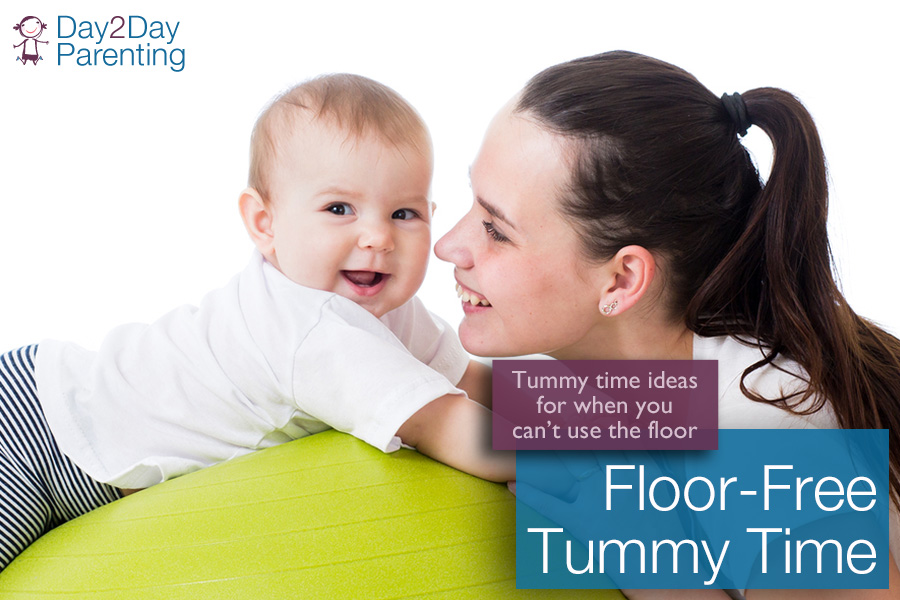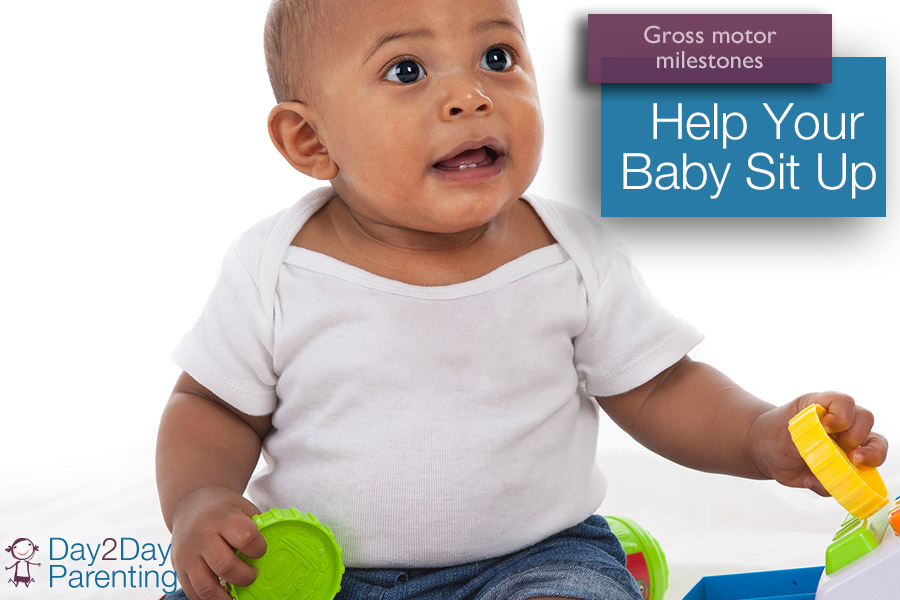Looking for ways to encourage your baby to roll and sit? Typically, rolling skills develop between 4-6 months and sitting independently develops between 6-8 months of age. You can help your baby meet these motor milestones by helping them to develop strong core muscles and assisting them in these movements every day. Diaper changes are a great time to help them …
Tummy Time Ideas For When You Can’t Use The Floor
From a very young age, it is important that babies be given playtime on their tummies. This helps develop strength in the neck, arms, and trunk which your baby will need to eventually sit up, crawl, and even walk! Tummy time also provides your baby with an opportunity to see his environment from a different perspective. But what are you …
How to Make Transitions Easier for Your Toddler
Many parents or caregivers discover at one time or another that transitions in daily routines can be very challenging with a toddler, particularly if that means ending a favorite activity or beginning a non-preferred one. While most toddlers have tantrums from time to time, there are some strategies that you can use to help make transitions easier for your child…and …
How to Properly Position Your Baby for Play and Development
The way you position your baby when cuddling, carrying, and playing with him can help him to develop his muscles and to learn motor and social skills. Back to Sleep and Belly to Play Tummy time is a very beneficial activity for babies, but it can be scary for parents to do with their newborn. You can do tummy time …
Positioning for Premature Baby Development
Infants born prematurely are met with a difficult situation. They try to grow and develop as they would have if they were still in the womb, however, they are doing so outside the womb. Proper positioning of preemie babies throughout their day can help them to achieve their goals for development and help ease the harshness of the world they …
How to Help Baby Sit Up Independently
Parents are very aware of the motor milestones their baby will meet in their first year of life. Sitting independently is a big one because now your baby can sit alone on the floor and begin to use both hands to grasp and manipulate toys. They can also now sit well in a high chair for feeding, and can sit …
Q&A: Preemie Doesn’t Like Tummy Time
I have a 6.5 month old (she was 5 weeks early). She didn’t start lifting during tummy time until 2.5-3 months and she struggles to push herself up into supporting herself on her hands (crawling position) unless I push her up and then she can hold it for a few seconds, she had absolutely no interest in bearing weight until …
The Importance of Tummy Time & Its Effect on Motor Skills Development
Tummy Time in the First 3 Weeks We have all heard about the importance of tummy time; increased vestibular input, respiratory benefits, digestive benefits and strength benefits in neck, trunk and arms which result in appropriate gross and fine motor development. These skills then positively affect everything from sensory processing to crawling and handwriting. What a lot of us don’t …
The Importance of Posture & Positions for Play & Movement
As a pediatric physical therapist for many years, I keep returning to the idea that posture, alignment and positioning are crucial for helping all children develop efficient ways of moving for play and exploration. Let’s start by talking about infants and toddlers. For many years now it has been recommended that babies be placed to sleep on their backs. This …
Q&A: My Baby Hates Tummy Time & Often Spits Up
I have a son who just turned 4 months. He hates tummy time and due to acid reflux, will often spit up. The problem is that he doesn’t do the mini push up or roll. He’s rolled belly to back twice, but not consistently and it happened almost a month ago by accident. Should I be worried? While on his …






